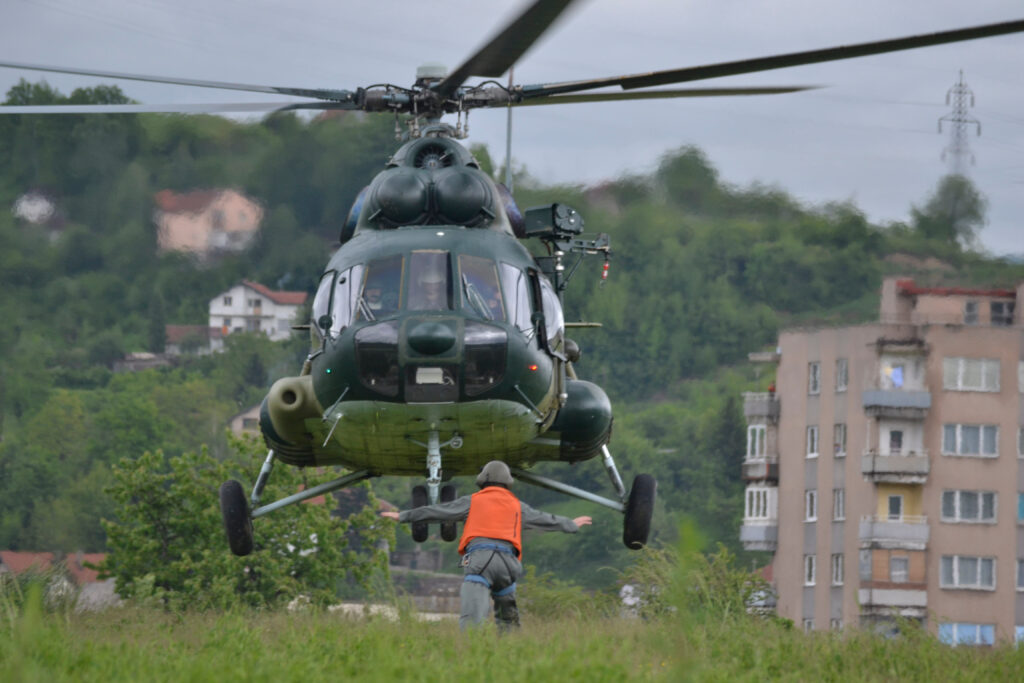The European Union (EU) has decided to send peacekeepers to Bosnia after tensions grew in the country. This decision comes after Bosnia’s highest court suspended laws passed by the Serb-majority entity in the country. The EU peacekeeping forces, known as EUFOR, are arriving to ensure peace and stability in the region as the political crisis deepens.
Peacekeepers Arrive to Support Bosnia
On Wednesday, reserve peacekeepers from Italy and the Czech Republic arrived in Sarajevo. The EU peacekeeping mission, EUFOR, welcomed them at the airport. These forces are part of a broader effort to stabilize Bosnia amid rising tensions.
Romanian troops, along with additional military equipment, will follow in the coming days to help reinforce peace efforts in the region. NATO has also shown strong support for Bosnia’s sovereignty and peace, with Secretary General Mark Rutte pledging to protect the country.
The arrival of these peacekeepers is a significant step. Bosnia has faced political instability since the 1990s, and the EU’s intervention aims to prevent further violence and keep the country stable.
Bosnian Serb Leader Defies Court Ruling
Bosnian Serb leader Milorad Dodik has been at the center of the political crisis. He introduced laws in Republika Srpska (RS), the Serb-majority entity, that banned the jurisdiction of Bosnia’s central security and judicial institutions. These laws affect nearly half of Bosnia’s territory and have worsened the political divisions in the country.
On Wednesday, Bosnia’s state prosecutors issued arrest warrants for Dodik and two other high-ranking Bosnian Serb officials. However, Dodik has refused to recognize the state prosecutor’s authority. He rejected the arrest warrants and said he would not cooperate with authorities. He made it clear that he would not travel to Sarajevo for questioning and rejected any attempts to arrest him.
Dodik’s actions are seen as a direct challenge to Bosnia’s central government and its stability. His refusal to follow the law has only increased tensions in the country.
Court Ruling and the EU’s Role
The political crisis deepened after the RS National Assembly approved Dodik’s controversial laws. The laws were introduced in response to a ruling by Bosnia’s state-level court on 26 February. The court sentenced Dodik to one year in prison and banned him from holding political office for six years.
The court ruled that Dodik’s actions violated the decisions made by the international community’s peace envoy, German diplomat Christian Schmidt. Schmidt oversees the implementation of the 1995 Dayton Agreement, which brought an end to the Bosnian War and established the country’s political framework.
The court’s verdict was based on Dodik’s actions undermining the authority of Bosnia’s central government. Although Dodik has the right to appeal, his defiance of the ruling has complicated the political situation in the country.
Bosnia’s EU Membership and Future
Bosnia has long aspired to join the European Union, but the ongoing political crisis has made this goal more difficult to achieve. The EU has strongly supported Bosnia’s sovereignty and territorial integrity, recognizing the importance of stability in the Balkans.
The EU’s intervention, including the deployment of peacekeepers, is part of the effort to maintain Bosnia as a unified and peaceful country. The international community, including the EU, has made it clear that it will not tolerate actions that threaten Bosnia’s stability and future.
The EU’s role in Bosnia is crucial. It has been a key mediator in Bosnia’s political disputes and has supported reforms in the country. However, the actions of leaders like Dodik threaten to undo the progress made toward a peaceful and democratic Bosnia.
The Role of the High Representative
The High Representative in Bosnia, who oversees the implementation of the Dayton Agreement, holds ultimate authority in resolving major political disputes. Christian Schmidt, the current High Representative, has the power to impose decisions and take action to ensure stability in the country.
Schmidt’s role is especially important in situations like the current crisis. Dodik’s defiance of the court ruling and the peace efforts of the international community present serious challenges to Bosnia’s future. However, Schmidt has the authority to step in and take necessary measures to maintain peace.
What’s Next for Bosnia?
The situation in Bosnia remains tense. The arrival of peacekeepers is a positive step, but the political divisions in the country are deep. The actions of Bosnian Serb leaders like Dodik continue to threaten the stability of the country and draw attention from the world.
Bosnia’s future is uncertain, but the international community remains committed to supporting the country’s sovereignty and peace. As tensions rise, it is clear that Bosnia will need strong leadership and global support to navigate this crisis.


